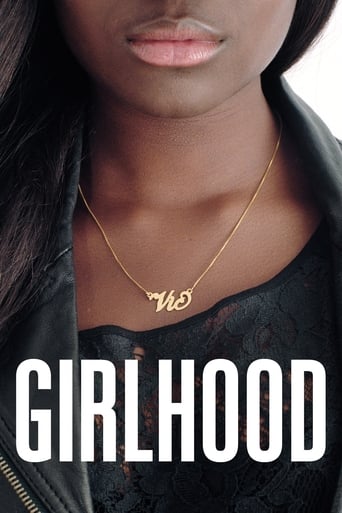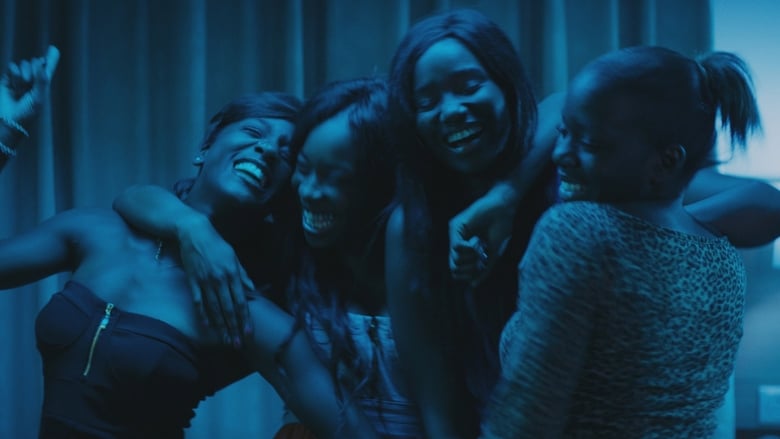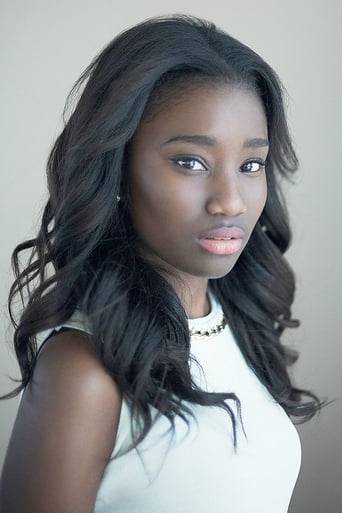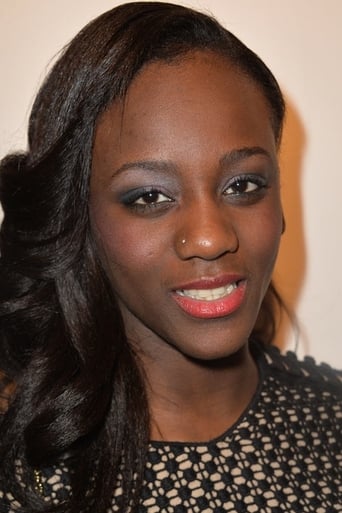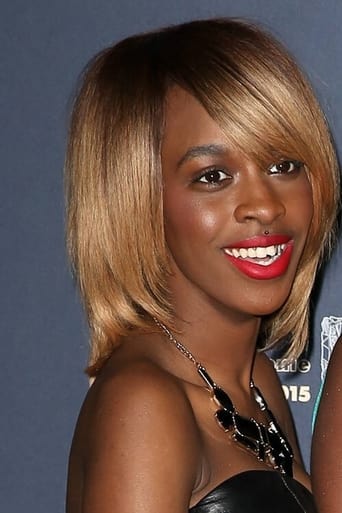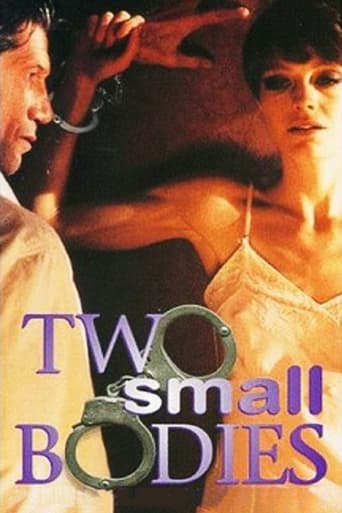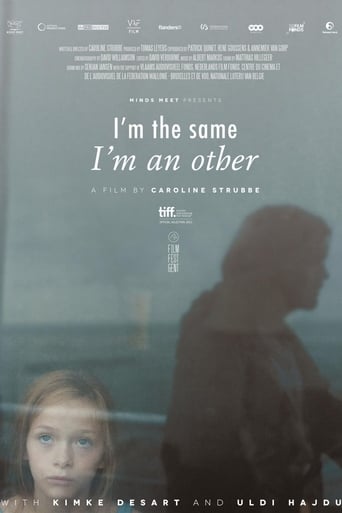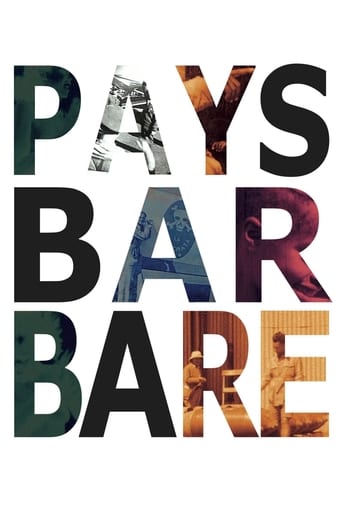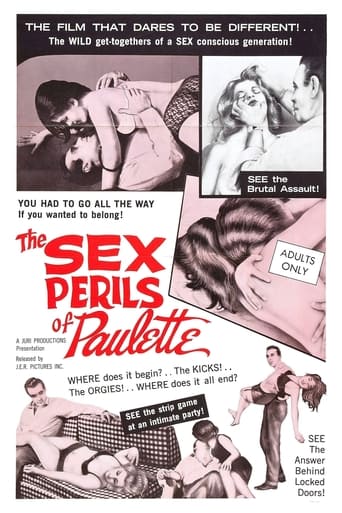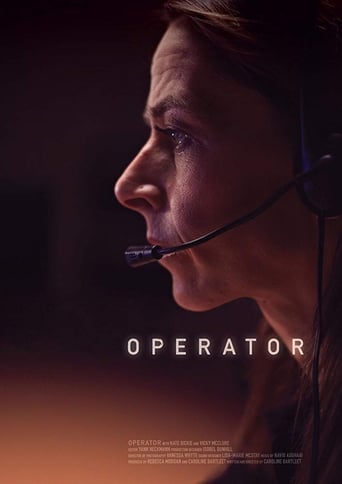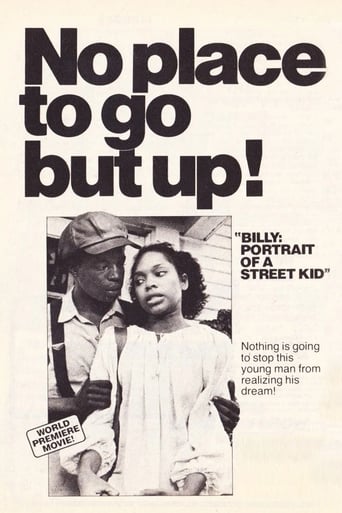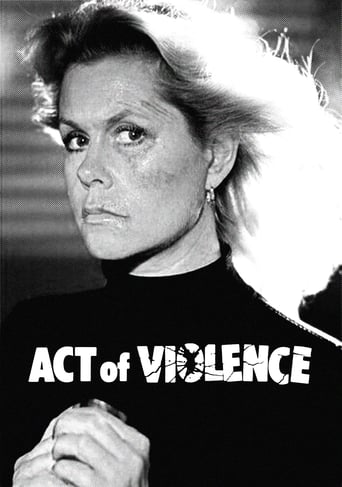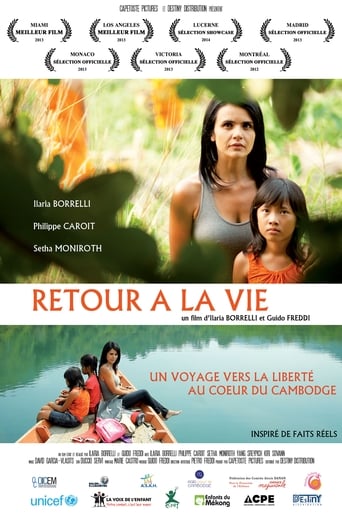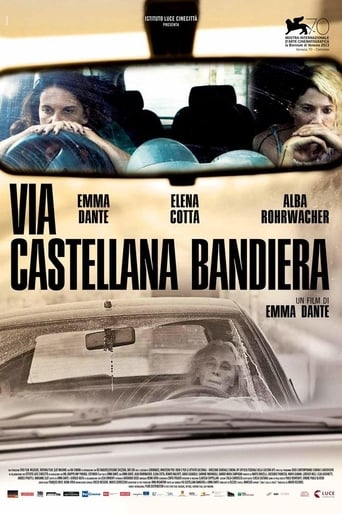Girlhood (2015)
Oppressed by her family setting, dead-end school prospects and the boys law in the neighborhood, Marieme starts a new life after meeting a group of three free-spirited girls. She changes her name, her dress code, and quits school to be accepted in the gang, hoping that this will be a way to freedom.
Watch Trailer
Cast
Similar titles
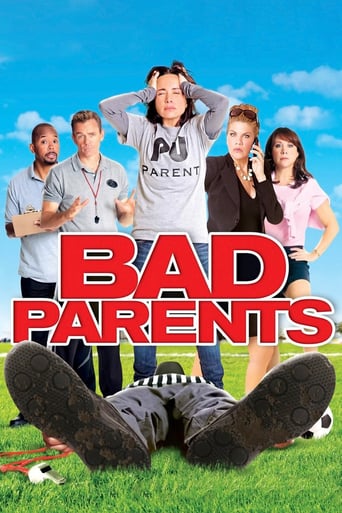
Reviews
How sad is this?
Good movie but grossly overrated
Fresh and Exciting
Don't Believe the Hype
Growing up on an estate, young Marieme finds herself leaving education, isolated within her own community, and stressed by those many forces on her. When she gets a new group of friends, she finds herself drawn into this new group of girls, changing her lifestyle as a result.Perhaps overpraised when it was released, I was pretty impressed by this film once I got to see it. It is an odd mix and one that is defined by the music and visual heavy opening; this is an approach that the film frequently takes – which is to have fun and stylish moments amid the crime, violence, and sense of oppression that exists otherwise. In some ways one could accuse the film of glamorizing this world, however what it is actually doing is presenting it in a natural and convincing way. By letting us in on the fun and comradery of Marieme's group, the film shows us why she is drawn into it, and the contrast between what she has otherwise. This is not the film saying that the gang is a better option, or a healthy one, but it does help us understand what is going on with the characters.These moments of style and fun also prop up the feeling of the estates as a real place. The pressure on the women in the film is tangible, and the nature of the world is played out well. It is a gritty and quite raw picture and one that works. In the lead Touré does well with the journey from child, to girl, to violence, and into a place that is really none of them but is informed by a wisdom that she hard earns. She is well supported by the rest of the cast – with Sylla being one standout. As a whole the film is well balanced and delivers a natural and engaging coming of age story.
Where THE FALLING failed to engage me on an emotional level, GIRLHOOD provided that in spades. It tells the story of Marieme (Karidja Toure), a young girl on the cusp of becoming a woman. Like pretty much every person, she wants to find a place in the world and be happy, and the film is basically an exploration of how she tries to achieve those goals. The major thing standing in the way, one of the cold truths about how the real world works, is that not only is she a female, but a minority female as well. She goes through all of the usual difficulties in addition to ones unique to people of color. For instance, because of her low grades in junior high (or at least the French equivalent), an unseen school counselor suggests that she go to vocational school instead of moving on to lycee (high school), which Marieme rejects. Her path to self-realization is an arduous and emotionally difficult one in which she encounters sexism and abuse, but still manages to soldier on. Her story is the story of many young women and, for that reason, it should resonate with many people regardless of cultural boundaries. From a technical perspective, the production values were impeccable and all of the performances were perfect, with a degree of authenticity I haven't seen in a while. Every bit of dialogue felt realistic, and the actors were even able to convey a lot through equally deft physical performances. I also quite liked the score and soundtrack. The only reservation I have is that the narrative is a bit unbalanced in how much time it devotes to each phase of Marieme's "becoming," but this is otherwise a phenomenal effort from all involved. For whatever reason, this got no love from the Academy, but GIRLHOOD is definitely worth your time.
Very interesting movie that proposes a "soft" perspective on the downfall of Karidja Touré in the spiral of delinquency and social exclusion. I think it touched most of the elements that trigger such an attitude and certainly the main one being the quest for having a better life in combination to the indifference of parents overcompensated by an excessively violent brother trying to play the role of a father and a mother.The rejection of school and the lack of solution for children in situation of family and educational failure is also well presented.I'm not so sure why it was made easy for her to enter a group of girls but the fact that they become her second family with their specific codes (which is no codes) is actually well illustrated. I think the perspective of the director was to propose a softer version of what reality truly is, however, it does not take away from the brutality of certain scenes which does bring the spectator to react and question the choices of Karidja Touré.I did expect her situation to degrade very profoundly but the film stayed on the its staying soft while showing the reality of things.Certain characters did seem a little bit caricatural at times to my feeling and was often quite an understatement to the brutality that really exists within "gangs" in general (though I'm fully aware that this clique of girls were not really a gang -; hence the absence of the true codes that drive these kinds of criminal organizations). Some of the girls did get a little "photoshopping" especially Karidja Touré.The quality of the image is quite good and the movie stays really dynamic. The reinforcement of the absence of any parental authority is well done. Indeed, the mother is extremely absent in the majority of the scenes and even if she would be, she has very little to say to her oldest daughter and daughters in general.The story holds until the end and the development of the Touré character is well conducted.
Be warned: BANDE DE FILLES is not a realist drama about the struggles of young women of color in the hardscrabble French ghetto. It is the creepy erotic fantasy of a middle-aged white lesbian."Celine Sciamma must be a homosexual," I deduced as I left the theater, proud of myself for penetrating the mystery of BANDE DE FILLES. A quick Google search confirmed my intuition. How did I know? First of all, every man in the movie save one is a violent psychopath. The single exception to this rule is a simple idiotic chauvinist. Now, this is not a criticism as such. I am sure that the men who live in Marieme's projects are quite as bad as Sciamma portrays them to be. However, it is clear that in Sciamma's libidinal economy, men are by definition psychopaths, which does not amount to the same thing. Second of all, the film ends with the main character becoming a butch pre-lesbian complete with short haircut and bound breasts. Huh? Nothing prepares us for this development. The director clearly wants us to raise our fist and cheer for Marieme when, in the last scene, she bravely chooses an uncertain Elsewhere over the oppressive environment she grew up in. But I know where Sciamma sends her when she walks out of the frame: straight to her bed. Now, there is nothing wrong with filming one's fantasy and filming it dirty at that. Sciamma's bad faith lies in the way she hides it under an unconvincing pseudo-political drama. Had she filmed a straight exploitation movie I would have been the first to award it ten stars, but I hate Beautiful Soul hypocrisy and ideology. The director's creepiness is double. The actresses have no idea that the unrealistic drama Sciamma has written for them is nothing but a pretext to perv on the otherness of their black bodies. Watching the film, we sense that this act of subtle deception perpetrated on the actresses by the director is a necessary ingredient in Sciamma's perverse scenario. Not only is she getting off on their otherness, she is getting off their ignorance of what is really going on. How is this different from what Hitchcock does? After all, his greatest movies are all perverse fantasies of possession hidden within the socially acceptable form of the thriller. The crucial difference lies in the fact that Hitchcock never claimed, implicitly or explicitly, that he was helping anybody, that he was an agent of Good, or that he was giving a voice to the disenfranchised. He told us loud and clear: I am dangerous. I am not to be trusted. Enter my fantasies at your own risk. Back to BANDE DE FILLES. Every few minutes the dialogue stops and Sciamma treats us to an extended music clip during which the exotic black proles undulate poetically and emote into the void. These are the money shots that are supposed to give the film an allure of artistic integrity. All they do is shore up the idiocy and meaningless of the actions of the four main characters. What is pornography? It is the attempt to render visible something that is radically invisible, namely sex. More precisely, it is the mystery of feminine interiority that pornography betrays by purporting to show it. The fact that Sciamma is a woman does not make her attempt to show what cannot be shown any more legitimate. We all become idiots when we attempt to depict feminine jouissance.Visually, the film is difficult to watch because of the constant close-ups. They create a claustrophobic effect that renders directly Sciamma's desire to possess her characters. Her camera is glued to their skin, incessantly and pervily traveling up and down their bodies. The fight scenes, each of which ends with a black teenage girl being beaten, stripped, and humiliated in front of a frothing crowd, form the true center of the movie. Here is where Sciamma's slip shows. We can sense her licking her lips and getting excited as she films these girls clawing at each other like enraged pit bulls. Rather than focusing on the standard fixed body parts as the perverse male gaze would, the perverse female gaze treats every inch of these girls as an erogenous zone. The resulting absence of a fixed point of view elegantly materializes Sciamma's refusal of the phallic order and its pretension to objectivity. But here lies also the problem. From a social point of view, there is nothing here but domination, submission, and misery. No one has anything but the most regressive and impoverished relationship with language and Logos, and we sense that Sciamma likes it that way. A few of the characters attempt to navigate through this fog of perversion towards something resembling morality, but with no outside support, all they can do is fumble. The long and the short of it is that Celine Sciamma, rather than denouncing the gratuitous misery and violence of French ghetto culture -- the only acceptable ethical stance -- gets off on it. Verdict: one more sanctimonious white ideologue using minorities for her own perverse agenda.
